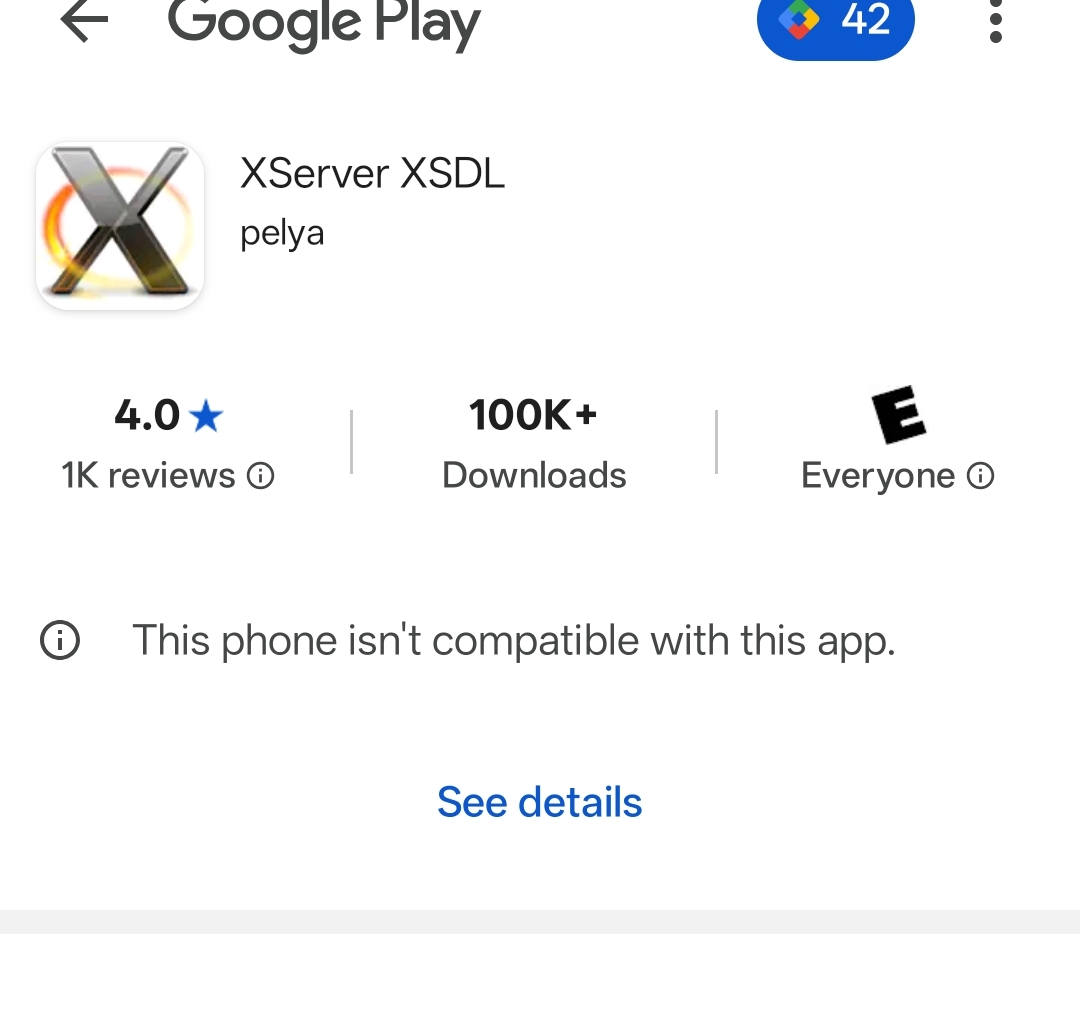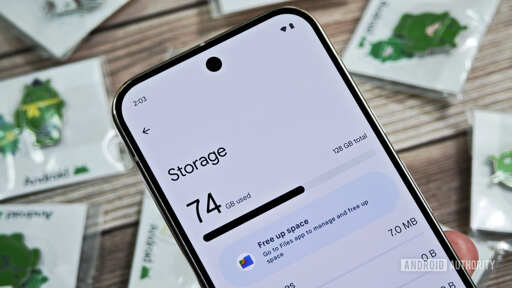This is going to be nice. Good first step.
Yeah let me know when I can install mainline Linux.
Definitely a step in the right direction, but the fact that android uses the Linux kernel but still manufacturers keep so much proprietary… It kills me
They’re doing this because they want to switch chrome to be android based, and they want to have desktop apps available right away since chrome doesn’t have much.
Not just that - modern Androids compile apps in a VM these days to reduce the attack surface of the compiler. You can also push other services into VMs that support the main image. You could even push some vendor drivers into VMs and help keep the main kernel less of a vendor fork fest.
I mean… This is kinda close. The “Linux Terminal” app is running a full Debian install in a KVM VM. On the newest version of the app (like on Android beta or on GrapheneOS), you even have a full GUI that you can use.
In theory, we should be able to boot any mainline Linux distro in a VM, if someone writes an app for it, as AVF (Android Virtualization Framework) is just a wrapper around Linux KVM with some restrictions. (for now the built-in app only supports Debian)
It reminds me Linux in chromeOS. Do apps use Wayland or X?
deleted by creator
Are you sure you’re talking about the Linux Terminal app that’s available in developer options and not Termux? For me, all Gnome things and Xfce things are present in the repos (and it’s using the deb.debian.org default Debian repos, so it makes sense)
Can I plug in an hdmi cable/keyboard/mouse and use it like a desktop and is there some way I can mount the android storage? (Eg can I get access to docs/pics/downloads)
On Pixel 8 and above, you can plug in external displays, but it will only mirror your phone screen. Supposedly, Android 16 will allow you to “extend” the screen, ie. treat it as a separate screen. Also, the GUI stuff for the Linux Terminal will only drop in Android 16, so yeah, I’m stoked for that release.
Sounds awesome!
It depends of your definition of mainline Linux. You can install Linux on your phone with thanks to postmarketOS Of course only if your phone is supported.
Im not sure what you mean, like, run android on mainline linux? if that is the case you already can. Not on all devices, but I think the pixel can run mainline kernel, I know ofc you can run androidx86 on mainline, if you mean via terminal I think you can sideload mainline. At least, if you compile your own rom you absolutely would be able to.
He clearly means the opposite
it’s not clear at all what he means.
deleted by creator
did you even read the comment I replied to? he asked about mainline kernel…
Press X to doubt.
The root filesystem will very likely still be locked down.
That’s not what this is about at all.
With the latest Android 16 beta, you can now allocate as much storage as you want to the Linux Terminal
until recently, it was restricted to just 16GB of storage space
Yeah, but that means that not the entire storage is available like the headline implies.
VMs can’t ever do that on any OS. I don’t think that’s a reasonable expectation.
Correct. The whole thing is lauded as this revolutionary new thing but in reality it’s just a bullshit VM isolated from the rest of the system. We have had that almost for as long as Android existed. Along with Termux and similar that actually can access everything.
The article is talking about storage space, not about access to files in any particular filesystem.
Previous versions of Android 15 Terminal app only allowed 16GB of space to be used by the guest system. The article mentions it.
So even if you had 128GB in your phone, previously you could only use 16GB of them in the environment Google set up for the Linux Terminal subsystem, which made it very limiting. What the article says is that now they are removing that limitation.
Doesnt even give access to the camera subsystem’s embedded flash memory, essentially useless
/s?
deleted by creator
I am not sure I understand what this has to do with the article. Also, I don’t see why that would be the case. I don’t see much of a good reason to lock the VMs down.
You can still root pixel phones no problem, no?
Yeah. I rooted my pixle 7pro a few weeks ago.
Then I guess the root file system has never really been locked down? It was shipped stock, but they give you the option to “OEM unlock” and root. I know samsung locks their shit, but this is google that is relevant here
Yeah , I far as I know the pixel is the only Android phone that ships so you can unlock the boot loader. I installed GraphienOS, so I block or not use google accounts for anything on the phone.
Not really, several phones (bootloader) can be unlocked, but only the pixel and very few others can be relocked… That is important for maximum physical security.
Your right, that is what I was thinking of, relocking it
My OnePlus 12 has that option, too. It can be rooted just as easily.
Awesome! How do you like the OnePlus phones?
I love everything about them except two things:
-
The aspect ratio. It’s too damn narrow and it makes the phone look like a tv remote. They need to go a bit wider like Samsung. They do this stupid 20:9 aspect ratio. Watching YouTube sucks on it, too. Half of the video is just black bars because of the aspect ratio.
-
There nonstop chase after apple. They literally copy apple letter for letter in their phones’ hardware and software and it’s fucking disgusting. They are even now talking about removing the sound modes slider and replacing it with a button just like on the iPhone. They’re drooling over apple all the time and it’s pathetic. If I wanted an iPhone I’ll just get one. There is a reason why I went android.
-
I’ve a pixel 7 running lineage is 22.2. I’ve seen some talk of magisk or twbp to root it but been too busy to dig into it.
You have any guide or video to spin me in the right direction? Thanks
This is what I did. Followed the instructions on the website, took me 30 minutes or so to get it set up and running.
Does Graphene OS have root by default? I’m not seeing any documentation
I dont think so? I’m not sure
Oh… You linked graphene os saying it has a 30 min tutorial how to root your device?
I tried magisk and patching the bootloader but doesn’t seem like anything happened after I used fastboot to load it on my device. When I figure it out I’ll do a write up because it shouldn’t be this difficult in 2025 I’d think, but maybe I’m just slow
deleted by creator
I has 64gb so I know your pain lol
Well, this should make for some fun, new script-kiddie malware.
Someone who owns a fancy new phone with Android 15 or 16, could you please test if you can run GUI Linux apps on it using my X server app?
Supposedly it should work like this:
- Install and run XSDL app
- Go to home screen, open Linux terminal
- Run commands
sudo apt-get install task-xfce-desktop export DISPLAY=127.0.0.1:0 xfce4-sessionOpen XSDL app again, you should see XFCE desktop environment with mouse cursor, and you should be able to launch Synaptic and install other Linux packages.
It tells me it is not compatible with my phone. Is it on fdroid? Can I sideload it from somewhere? I have a OnePlus 12 phone and it is running Android 15

Google’s bullshit strikes again! All apps must be built for Android 13 or they are removed from Play Store, apparently because Google could not do the Android security correctly for the first 12 versions. Now they can emulate Linux on Android, but cannot emulate an older version of Android on Android. And I last updated my app in 2021, during Android 11 era.
Here’s the link to sideload the app:
I’ll try to update it on Play Store tomorrow, if my crusty build scrips will work with the new Android SDK.
Ok, the app doesn’t have any place to enter those commands. It opens up this msdos like blue terminal and it’s stuck there. I can’t type anything. And the keyboard shows when I press the back button on the phone. I can’t exit the app,I can only exit with the home button


You need to enter these commands in the Linux terminal app, not in the X server app. Once the two apps connect, it should be possible to launch another terminal inside the X server.
-
Go to your phone Settings > About Phone and tap “Build number” seven times. You will receive notification that your phone now has developer options enabled.
-
Settings > System > Developer Options > Linux development environment. On that page, tap the On/Off slider.
-
You will find an icon for the new Terminal app on your home screen. It’s going to download 500 MB of data when you open it.
-
Long-press the Terminal app icon, tap Info > Mobile data, and enable Unrestricted data usage.
-
Now you can download more packages inside your Linux virtual machine using
apt-getcommand, as described in my previous post.
I’m pretty sure this is all in android 16 beta, which I don’t have. My dev options don’t include that Linux development environment option.
It’s supposed to be available on Android 15, but only on ‘select devices’, so probably only on Pixel.
Thanks for trying it.
Could be. I don’t like the pixels. And I don’t like OnePlus either. Phones are like TV remotes now. So narrow and watching videos on them sucks. Going back to my Samsung ultra line up next year.
-
deleted by creator
Yup, Android is Linux, but you can’t run desktop apps on it like Gimp or LibreOffice or VS Code, that’s what Linux terminal is capable of.
I’d just like to interject for a moment. What you’re refering to as Linux, is not in fact, GNU/Linux, or as I’ve recently taken to calling it, GNU plus Linux. Linux is not an operating system unto itself, but rather another free component of a fully functioning GNU system made useful by the GNU corelibs, shell utilities and vital system components comprising a full OS as defined by POSIX.
Many computer users run a modified version of the GNU system every day, without realizing it. Through a peculiar turn of events, the version of GNU which is widely used today is often called Linux, and many of its users are not aware that it is basically the GNU system, developed by the GNU Project.
There really is a Linux, and these people are using it, but it is just a part of the system they use. Linux is the kernel: the program in the system that allocates the machine’s resources to the other programs that you run. The kernel is an essential part of an operating system, but useless by itself; it can only function in the context of a complete operating system. Linux is normally used in combination with the GNU operating system: the whole system is basically GNU with Linux added, or GNU/Linux. All the so-called Linux distributions are really distributions of GNU/Linux!
This is gonna be cool. Does Android 16 release in the fall?
Some time in June.
Ok. Now it won’t be abandonware for me.
I’m so very lucky to have a device with linux mainline ported to it.
deleted by creator
Linux tablet* :))
While technically cool, what is the use case?
It’s in the article. They want to run Linux desktop apps on Android because they’re switching chromeOS to android base instead of Linux.

















